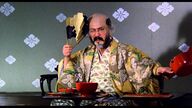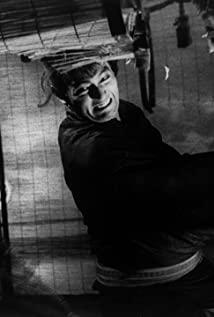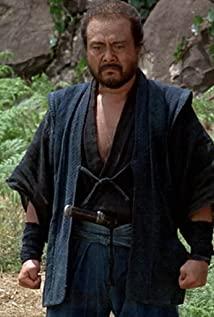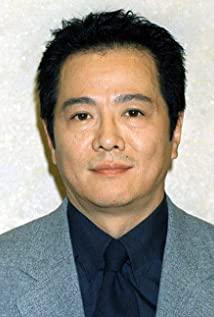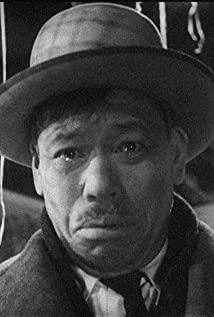Modernity and the Will of Director
Japanese Official History: In the first year of Tensho, Takeda Shingen was besieging Mikawa’s Noda Castle. When he wanted to compete with Oda Nobunaga and Tokugawa Ieyasu in Kyoto, he died in the Takeda army. Three years after his death, the Takeda family was finally woven. The German Allied Forces fell together.
As for why Takeda Shingen died in the army, and why the Takeda family was destroyed by the Zhide coalition three years after the death of the main body. Probably only the dead Takeda Shingen was recorded as a substitute, that is, at that time. The so-called Kagemusha (かげむしゃ) in Japan fooled Oda Nobunaga and Tokugawa Ieyasu so that they did not dare to act rashly and lasted for three years. On the basis of this merger of official history and unofficial history, Kurosawa "dressed up" history slightly, and compiled the story of this shadow and the master-"Kagemusha".
The opening scene of the film is a long shot of nearly 7 minutes. The only light source in the composition is the candlelight on the right hand side of the Rogue Shadow Warrior. When there is light, there is a shadow, but the only shadows that are obvious are Takeda Shingen, Takeda Shinren and Takeda Shinren. The shadows of the thief Kagemusha are outside the painting, but are in the field, so they are hidden. Then if the two shadows that have been erased and visible are added to the established facts in the composition as shown in the figure, Takeda Shinren and the thief Kagemusha I don’t know that my own shadow is excluded from the “composition”. In the story, it points to Takeda Shingen’s exclusive “majesty”, because someone has light and shadow, but this “majesty” does not determine whether he is Takeda Shingen himself. "Kagemusha" is the hidden manipulator of the whole story-Kurosawa Akira. In the whole composition, the part that the audience can see is called the real world for the time being. Then the two shadows that should appear in the real world can only be filled by the shadow imagination of Takeda Shingen, the only one in the composition. The "real" outside the painting is present, and thus becomes a product of the imagination. The unknowingly Takeda Shinren and the thief Kagemusha have the symbolic nature of the symbolic world that combines the virtual and the real because they did not realize their incompleteness. This symbolic nature To a certain extent, it was the inevitable result of the incomplete subjectivity of "human" under the shadow of the absolute power of the lord in the feudal era. Take a look at Takeda Shingen's so-called way of using soldiers: {So its speed is like wind, its speed is like a forest, it invades like fire, it does not move like a mountain, it is hard to know like a yin, and it moves like a thunderstorm. ("Sun Tzu: Military Struggle")"}, after dismantling Sun Tzu's Art of War, he regarded himself as the mountain's Shingen, and of course became the so-called spokesperson of absolute power. However, at this time, the thieves of the shadow warrior apparently refused to admit it, and Xinlian asked him When Shingen came to be a shadow warrior of Shingen, after Shingen questioned him, the thieves sneered, claiming that it was nothing more than a small evil of thieves, and Shingen was a great evil full of evil. Shingen was not angry, and explained to the thieves that he had killed his father and son. Such behaviors are all for the purpose of unifying the world and avoiding the necessary evils of more creatures being smeared and bloodshed. That is to say, Shingen Takeda himself, as the direct privilege of the thieves, is actually just one of the signifiers of the ruler of the world. Privileges exist only. The unification of the two requires the fact that the Takeda family captures Kyoto and defeats Oda Nobunaga’s and Tokugawa Ieyasu’s armies to reach agreement. When we extend Shingen’s rhetoric to "I speak better than myself After the expression of "a higher level of existence", its meaning points to a higher level of ideas, and it also reaches the symbolic realm. At the level of the imagination and the symbolic realm, the selfThe difference from the composition of the subject is that the former is a product of narcissistic identification in the imaginary world, and the latter is a product of symbolic identification in the symbolic world. There is no doubt that Xinlian and the thief shadow warrior belong to the former of "Wuying" first, and thus produce the self; at the same time, because of the unknowing symbol attribute of the imagination, the subject is produced. On the other hand, Xinxuan, in addition to the above-mentioned symbolicity produced by his own words of higher-level existence, in the composition, people and shadows are clearly visible, and the symbolicity has been directly produced by the reality and the virtual, but the overall lack of imaginable Part, so there is only the subject without the self, which indirectly implies the emptiness of Xinxuan’s self, that is, the " death of the self ", which also coincides with the inevitable incompleteness of the subjectivity of the "person" in the feudal era, that is, the "death of the self". The inevitability of ", to some extent, also implies the inevitable follow-up of Takeda Shingen's death but Takeda Shingen's idea still exists.
The movie here forms an inevitable split on the factual level. As a feudal monarch, Shingen Takeda is not only an oppressive ideology itself, but because of this meaning, it leads to self-deficiency. If you want to remedy this deficiency, you need to return to Xinxuan's ambition to explain his necessary evils to the thieves. This is the imagination of the Xinxuan subject, and the self can be produced after it is urgently completed. In terms of plot, this imagination provides narrative motivation for the development of the subsequent plot; in the form of the three realms, Shingen's self-generation is extremely dependent on the realization of the above-mentioned factual level of "occupying the capital and defeating the two generals". Here, the film has formed another new hidden level of possible division, that is, success or failure, in the case of success, self-generating, but the ending and opening of the story are the composition of the story and the whole scene implies. The inevitability of the ending is violated, thus directly exposing the ingenious connection of the whole film and hiding the full control of the author, thus completely losing its place; in the case of failure, self-defeating, but the ending of the story coincides with the ending implied by the composition and the play. During this period, the narrative depth is not only achieved, but the whole of the "play" is effectively hidden by the narrator so that what the audience sees is truly "real", and then the expression is completed. It is not difficult to find that this hidden possible split clearly creates a rather interesting "suspense" about whether you can succeed, and success is the impossible option, and failure is the only option, thus revealing the "suspense". "Suspense" is actually the attribute of false suspense. The beginning and the end are known, and the overall structure has become a clear irony. Combined with the fact that the Takeda Shingen family was eventually destroyed in the official history of Japan, Kurosawa also throws out "The movie originated from "History" may be higher than the historical structural concept.
Recognizing the attributes of the overall structure and the multi-layered metaphors and divisions contained in the opening composition can slowly reveal the secrets of the narrative. The story behind the prologue begins with the Takeda Army's siege of Mikawa Noda Castle. After that, Shingen Takeda was assassinated. Before he died, he left a last word in disguise for three years and rejuvenated himself; afterwards, the thieves' shadow warrior "in power" succeeded in deceiving his own people. , Deceived the two secret agents of Zhide, and Shingen's grandson and concubines; to encourage Shingen's adopted son Takeda Katsuyori to take the Gaotian God City and Qiangqi Heiyunju to be thrown to stand for being exposed; finally, the strength of the entire Takeda family declines and rises Yibo Li defeated the Zhide coalition forces, and eventually the whole family was destroyed.
In this superficially typical three-act play format, we try to analyze Kurosawa's deep thoughts in a further level. After Xin Xuan's death, Xin Lian and all his retainers tried their best to follow Xin Xuan's last words and tried their best to conceal them. During this period, there were some worries that the opponent would know that the Takeda family had no leader, and there were also insistences to continue to abide by Xin Xuan's instructions. For the three men at the beginning of the story, the remaining Xinlian and the thieves are somewhat passive, and the reason for being passive is in the final analysis because of the tremendous depression caused by Xinxuan's death. This kind of repression is first of all epochal, originating from the shackles of agency teaching and tradition in the feudal time when one person was overwhelmingly large. For Xin Lian, the destiny of the family brother and the monarch cannot be violated, especially after Xin Xuan's death, the important task of assisting the new king has almost all fallen on the shoulders of one of the former shadow fighters, Xin Lian, who is precarious and eye-catching. Liang is a sharp blade that keeps him awake all the time. Under this circumstance, Xinlian was able to keep the Takeda family alive tonight, which is already a great fortune. Therefore, within the three years as stipulated in the agreement, he did not have any plan to break through his brother's last words, thus showing his passivity. And after going deep into the spiritual world of the thief shadow warrior, we will find that there is a deeper metaphor, that is, social repression, which stems from the disparity in class, status, resources, and ability that has continued from ancient times to the present. For the thieves of the shadow warrior, in the era of war between heaven and man and years of conquests, such disasters as struggle and killing, moral depravity, and the suffering of the people will inevitably appear to him in a more blatant form of violence, and there can be a side. The land is enough, not to mention that you can get a life of rich clothes and a servant and a concubine if you only need to use it for nothing and just play another person, so of course it is also very passive.
Under this dual repression, its strangeness is also fully manifested at the same time, that is, Shingen Takeda has died, there is no physical source of the two repressions, and because the two roles are passive at different levels, it is difficult for viewers to identify with them. And then empathize. Reflected in the overall plot of the movie, passivity will cause the core to be missed or even absent, the irony structure becomes loose and disorderly and lacks cohesion, and the eloquent plot also produces many unexpected effects of white space, so this repression implies What is the meaning of? From the perspective of Lacan's theory, what exists in the imaginary world is the relationship between the self and the mirror image (little other) (the monarch and the shadow warrior), and this relationship depends on the convergence of imagination between the two. It comes down to the movie, that is, Xinlian and the thief are similar to the shadow warriors who belong to the imagination and the same Shingen; in the symbol world, there is the relationship between the subject and the symbol (the other) (the shadow warrior and the monarch), and this relationship depends on the subject and The difference between the symbols cannot be ignored. It comes down to the movie, it is the individual difference that Xin Xuan, Xin Lian, and Thieves belong to the same symbolic world but are absolutely different. However, absolute difference and convergent similarity are the eternal and unchanging truths. Therefore, in the imaginary world, self-identification of others is fundamentally a misunderstanding, that is, the mutual identification of trustworthiness and thieves. It is a kind of beautiful misunderstanding that seems to be able to coexist; and in the symbolic world, the subject’s identification with the symbol is basically a lack of identification. Only the subject has no self-identification.
Therefore, this kind of oppression is actually an inquiry , an ideological appearance. It will gradually deprive the faithful and the thieves of the self during the course of the story. It is the projection of the “ death of self ” of necessity mentioned above . The ambiguity in many blank places also has the opposition in meaning, which is the basis for the signifier chain to be formed by the signifier and metonymy. From this perspective, the passive role in the relatively loose structure due to the passive role as a whole, especially the Takeda Shingen and the Rogue Kagemusha, both played by Nakadai Tatsuya, is gradually progressing in the plot with the characters set on both sides. For the metaphysical representation of the idea of the Shingen monarch, and the metaphysical idea of the ideal monarch in the thieves’ minds, I obtained the ethics or ethics represented by another shadow warrior (Xinlian), retainers, concubines, grandchildren, and servants of the monarch. Or the identification of order is enough to become the signifier of privilege, so that in the monarch's ideology, it blocks the unrestricted expansion of its oppression, and becomes the real monarch to complete Takeda Shingen's unfinished business. However, the development of the story clearly deviated from this seemingly beautiful ending. Shingen Takeda’s black cloud horse, lacking in the concept of the monarch, but self-identification of Shingen has become a sign of breaking this privilege signifier (this is just the same as the so-called Peerless BMW only recognizes a certain kind of feudal brainwashing theory that has the domineering spirit is the opposite).
It is precisely in this rupture of "recognizing people but not princes" that the signifier chain can continue to extend. The inevitable failure of Takeda Katsuyori to take over after the Kagemusha incident was revealed is actually already predetermined. The fragmented Takeda Army. The Kagemusha was forced to choose to exist at both ends of the meaning, and continue to pass on the invisible oppressive ideology to every soldier, officer and soldier of the Takeda Army, thereby reconfirming his own existence. This is also the last paragraph of extreme freehand. Almost all the space outside the painting is used to express the deep meaning of the destruction of the Takeda family. And it is in the broken gap and the extended chain of signifiers that we can also glimpse the real intention of Kurosawa Akino’s intensified painting-style scheduling: First, the use of natural light and shadow and artificial elements with romantic elements, including naturalness The expressive color symbol with the scheduling, presents the characteristics of blending as a whole. The purpose is to break through the immanence and nihilism of the natural world from the mystery of the beauty of the blend of nature and man, and then establish a "benchmark dogma" that is objective and perceptible at the historical spiritual level. ; Secondly, using the expressionist approach created by tending to purely man-made graphics, around the characters, highlighting their subjective performance, the purpose is to penetrate the characters' hearts and make their sensory psychological intentions outward, while the former is opposed to the objective The limitation of sex directly directs the sensible consciousness to the human heart dialectically, and then consolidates the realization and supremacy of consciousness.
Kurosawa Akira’s narrative and scheduling from reality & performance to performance & philosophy is roughly transmitted from {real reality} to {psychic reality}. The form of expression, natural or man-made elements, is nothing at all. Consciousness, even a certain state of "nothing" that can't even produce a simple mental state, but this kind of "nothing" can arouse the audience's complex feelings through narration and scheduling, and it turns from " nothing " to " being ". It is the simplest composition (opening scene), the most plain narrative (three-act drama), the most simple scheduling (painting style) can achieve the unique moment of expression-rich and changeable levels of sadness and joy, and the concept of truth. Therefore, as the director, Akira Kurosawa, his job naturally is to give "Takeda Shingen shot dead", "Takeda family army falls to the ground and die", and "Takeda Kagemusi die with the wave" scenes with "true". Enough, this is also the master's technique of using simplicity to control the complex and turning the complex into simplicity.
And this kind of rich and multifaceted true reality, if pursued in the master’s film sequence, privately believes that since his debut work "Zushi Sanshiro", Akira Kurosawa has always upheld the idealist-like loftiness of {Rebuilding Japan} The concept is almost implemented in most of his works, such as "Zizan Shiro", "The Man Who Stepped on the Tiger's Tail", "I Have No Regrets for Youth", "A Beautiful Sunday", "Drunken Angels"... "The Desire of Life", "Seven Samurai", "Evil Man Sweet Dreams", "Heaven and Hell", "Train Mania", etc., are unique to Japanese society after the Second World War, quickly out of the haze of war, facts China became a colony of the United States, the horrific rapid economic development and the appalling bubble collapse, the old feudalism still dominates the lifeline of the country and the future power politics, the fierce collision of traditional culture and modern thoughts, and so on. It is inevitable to seek solutions. The embodiment of an idealized "reality" trend. At the same time, if we can understand the personal creed in "The Desire of Life" about the extremely individualized "unexamined life is not worth living", it can be understood as Kurosawa Akira's {rebuilding Japan} the highest narrative form As for the work, then we can call "Kagemusha" the work with the highest narrative concept of {Rebuilding Japan} , in which if you don't hold on to a certain kind of supreme original intention and simple persistence, it is the prolongation of its film history and inheritance. The refining and manifestation of the ghosts of the history of {Rebuilding Japan} , the emotional power contained in "Kagemusha" is precisely derived from the persistence of this idealistic belief. What should be noticed is that this kind of perseverance, In fact, it has long been left to future generations, and has helped to this day.
View more about Kagemusha reviews



